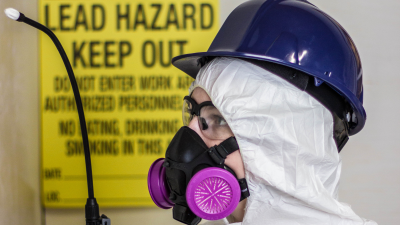The 1.5 million people who are exposed to lead at work would be safer under proposals adopted today by the European Parliament’s Committee on Employment and Social Affairs – but more research is needed into its effect on reproductive health.
The Spanish presidency of the Council is set to convene inter-institutional negotiations with a view to putting these protections into force.
The current exposure limits for lead leaves workers at risk of reproductive problems as well as stomach, lung and bladder cancer as a result of inhaling lead dust or fumes.
The ETUC thanks rapporteur Nicolaj Villumsen or the Parliament’s committee on employment and social affairs, which today committed to making progress towards new lower limits as part the fifth revision of the Carcinogens, Mutagens, and Reprotoxic Directive:
- Occupational exposure limit: Lowered from 0.15 milligrams per cubic meter (0.15mg/m3) to 0.03mg/m3
- Biological exposure limit : Lowered from 70 microgram per 100 millilitre of blood (70µg/100ml) to 15µg/100ml.
That would improve the safety of workers in 11 EU countries that currently have exposure limits higher than those proposed by the report.
The Parliament’s committee also commits to, as soon scientific evidence becomes available, that the biological exposure limit value should be reviewed and lowered down. This is important in order to protect women already working in the industry and to support a more gender balanced workforce in these sectors. A long-term goal of 4.5 μg lead/100ml must be maintained for the BLV.
The report also includes the following improvements won by the ETUC:
- A requirement for employers to take all possible measures to protect women and unborn children from exposure to lead.
- Further research on the impact of lead contamination on reproduction and fertility of women and men and a review of the exposure limits based on its outcome.
- No derogations for small and medium size companies - all employers should be held accountable for providing a safe working environment for their employees.
ETUC’s Deputy General Secretary Claes-Mikael Ståhl says:
“More than a million people are exposed to lead every day at work in Europe and we need to ensure that they are properly protected from the danger posed by lead poisoning, particularly to reproductive health.
“The current exposure levels are far too high to keep people safe and need urgent reform, further reforms will be needed, but today’s decision by the Parliament’s committee on employment and social affairs is an important step forward.
“The Parliament’s proposal will bring safety standards into line across Europe – it’s not right that workers in the east and south are being treated as second class citizens when it comes to health and safety at work. We call on the Spanish Presidency to make haste and on other member states not to oppose this progressive step towards safer work.
“But further research on the impact of lead exposure on fertility and reproductive health is needed and the limits should be reviewed as soon as possible based on its outcome. It is particularly important to ensure women are properly protected in the workplace.”

